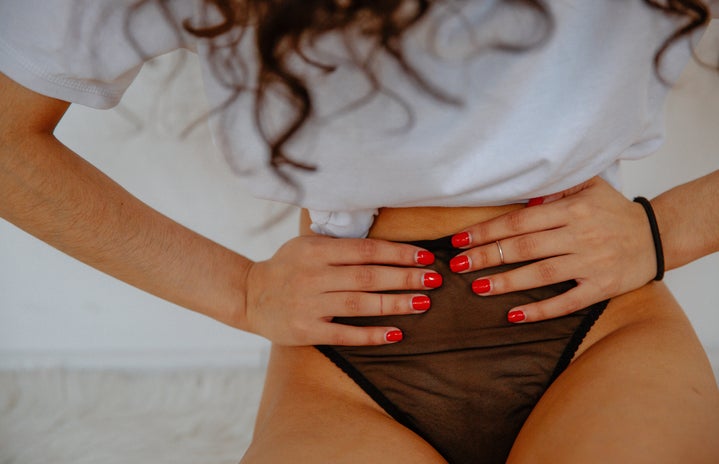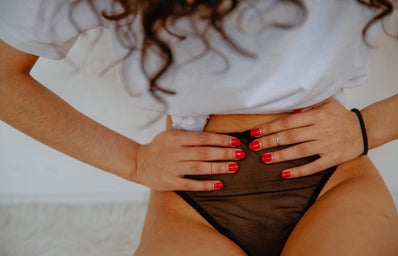For the first two years I had my period, I didn’t have a single regular cycle. Sometimes I’d get two cycles in one month, or absolutely nothing for three months straight. Although irregularity was a constant, my pubescent self was still paralyzed with fear every time my period was late for fear of some deadly disease or even pregnancy (although I wasn’t sexually active, you try to reason with a nervous 12-year-old.) I learned later—not through “FLE,” as my school district put it, or sex-ed, but through the older women in my life—that irregular, early periods is beyond normal. I’m lucky to have had that guidance early on, but for many young people, school is going to be the only place where menstrual health is ever talked about.
In many schools where sex education is apart of the curriculum, menstruation is taught with a particular emphasis on biology rather than with attention to the more individual aspects of reproductive health, including variations of anatomy and details about the use of sanitary products. Period education is too general which can leave young menstruating people, just like my younger self, in the dark.
The most prominent example of irregularity that the menstruating people in my life and I have experienced is the varying range of colors one’s blood can be. Pretty much anything ranging from brown to orange is usually perfectly healthy—but when brown spotting could mean either the start of your period or a miscarriage, being able to identify the nuances is essential.

In my personal experience, methods of birth control were touched on and outlined for us, such as the pill. When we were taught about the pill, though, few details, if any, were shared about the effects it can have on menstrual cycles. The pill, as well as IUDs and a number of other methods of birth control, can increase or decrease the bleeding intensity and period length.
What I’ve named is only a small sample of how American education is lacking in menstrual health education. Around the world, lack of access to personal hygiene products coupled with stigma, misinformation and poor education causes numbers of young menstruating individuals to give up on pursuing their educations altogether. Good menstrual hygiene keeps young people in school, which is a life-altering privilege everyone should be entitled to, and good menstrual hygiene starts with learning the proper information for taking care of your reproductive system.
Real change in the structure in this sector of sex education needs to start with removing the taboo around periods. Specific details come second to the simple convenience of being able to talk about periods without a shroud of shame and embarrassment. The same goes for female birth control, which serves as a means of period control for a number of menstruating people like myself. Studying the anatomy and biology of our bodies is a start, but what needs to be examined closer is the nitty-gritty of how often and intensely our body varies from the next person.


